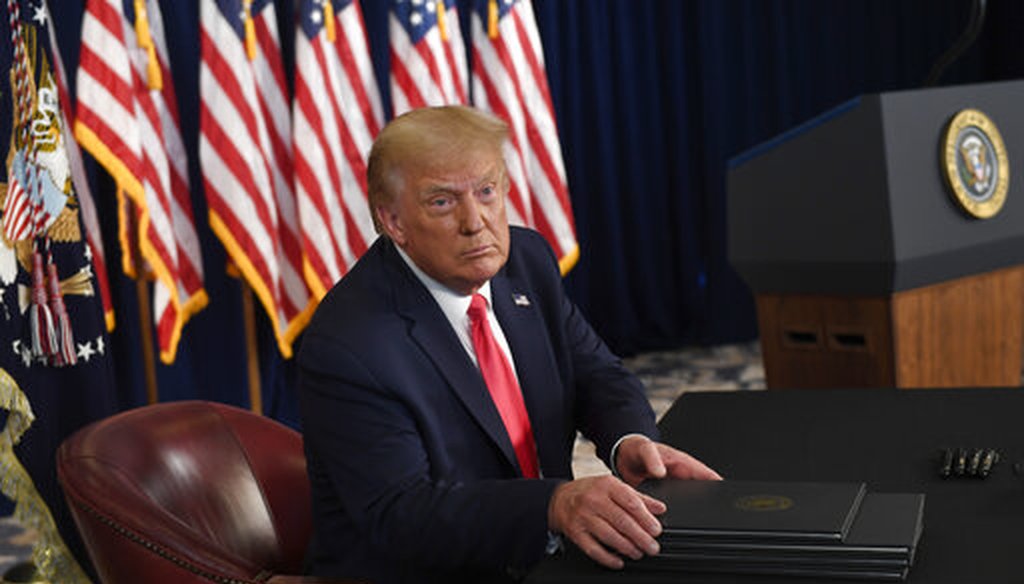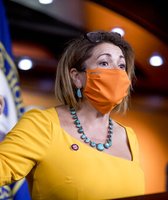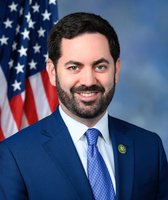Stand up for the facts!
Our only agenda is to publish the truth so you can be an informed participant in democracy.
We need your help.
I would like to contribute

President Donald Trump prepares to sign four executive orders during a news conference at the Trump National Golf Club in Bedminster, N.J., Saturday, Aug. 8, 2020. (AP Photo)
If Your Time is short
-
Congress passed coronavirus relief in March that deferred student loans through September 2020. Trump’s memo extends student loan deferrals and interest rate waivers to the end of the year.
-
The House passed legislation that would defer loan payments until September 2021. It has stalled.
President Donald Trump signed a presidential memorandum Aug. 8 to defer federal student loan payments and waive interest rates for tens of millions of borrowers. The memo was the fourth of a series of executive actions the president took in lieu of congressional agreement on additional coronavirus relief.
The move is an extension of a portion of the Coronavirus Aid, Relief and Economic Security, or CARES, Act passed in March. The law deferred payments and waived interest rates for certain federal loans until Sept. 30, 2020.
Among Trump’s other measures on eviction policy, unemployment aid and payroll taxes, the student loan deferral memo seems the least likely to receive legal barriers to being enacted, said Sandy Baum, a nonresident senior fellow at the Urban Institute.
"It’s hard to imagine that this is the memo that is going to be challenged," she said. "It just doesn’t seem like the controversial one."
Trump’s memo would include recipients of federal student loans in the Direct Loan Program and loans in the Federal Family Education Loan Program that are owned by the U.S. Education Department. (Private lenders gave borrowers federal student loans through the program, until the program stopped issuing new loans in 2010.) The measure would affect over 35 million borrowers of federal student loans, said Mark Kantrowitz, a student loan expert.
Sign up for PolitiFact texts
The student loan relief included in the March coronavirus package did not apply to over 8 million borrowers from some federal programs, if the loans are not owned by the Education Department. Those include the Federal Family Education Loan Program and the Federal Perkins Loan Program, according to the Bipartisan Policy Center.
The Institute for College Access & Success estimates that the payment deferral saved 18 million borrowers over $45 billion over six months, and a three-month extension of this would save borrowers another $23 billion, spokesperson Angelique Palomar told us.
Like other issues, Democrats and Republicans in Congress are far apart on how to help people with student loans.
Trump’s temporary measure goes further than the stimulus package introduced by Senate Republicans in July, which would not have deferred student loans. The $3 trillion measure passed by House Democrats would extend student loan deferrals through September 2021 and would also include private and commercially-held federal student loans.
Before the pandemic exacerbated economic stressors, the Federal Reserve estimated that over half of young adults who attended college took on debt, and one-fifth were behind on their payments in 2017.
Our Sources
The White House, Memorandum on Continued Student Loan Payment Relief During the COVID-19 Pandemic, Aug. 8, 2020
U.S. Department of Education’s office of Federal Student Aid, Coronavirus and Forbearance Info for Students, Borrowers, and Parents, March 27, 2020
U.S. Department of Education National Center for Education Statistics, Student Debt, accessed Aug. 10, 2020
Congress.gov, H.R.748 - CARES Act, March 27, 2020
Senate RPC, Update on the coronavirus response: Heals Act, July 28, 2020
Phone interview with Mark Kantrowitz, publisher and vice president of research of Savingforcollege.com, Aug. 10, 2020
Phone interview with Sandy Baum, nonresident senior fellow for the Urban Institute, Aug. 10, 2020
Phone interview with Michele Streeter, senior policy analyst for The Institute for College Access & Success, Aug. 10, 2020








































